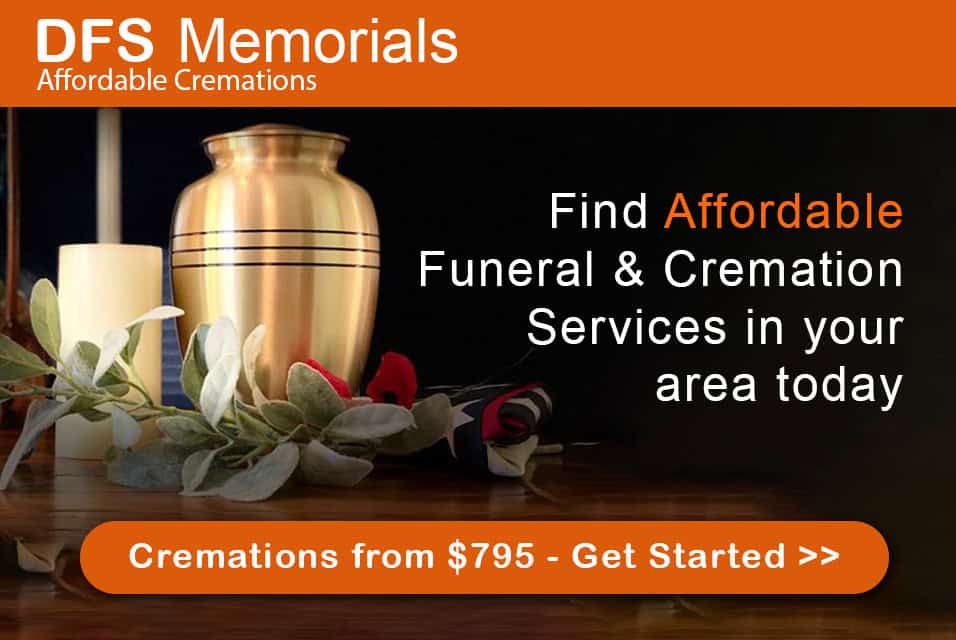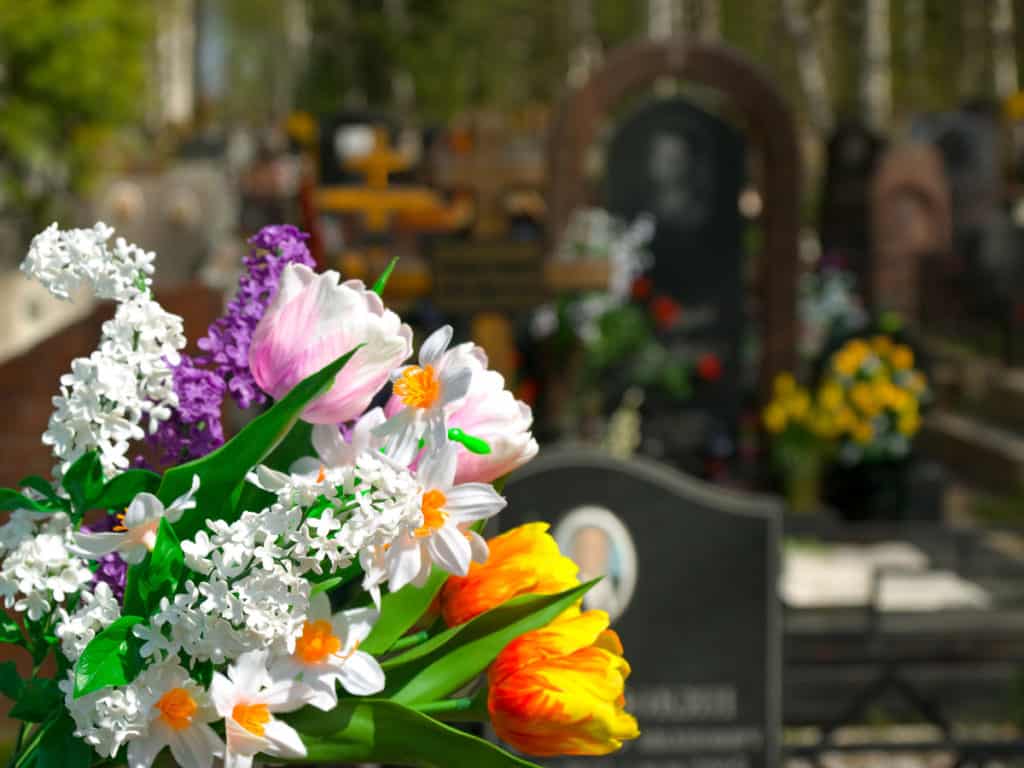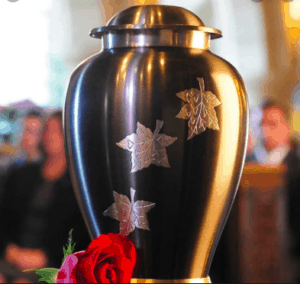
Funerals can be unnecessarily expensive, in fact so much so, that a funeral is usually the 3rd or 4th largest single purchase you will make in your life behind a house, a wedding, and a car. Now would you go and purchase a house, or a car, without any research or planning? No, of course not, most likely you would research beforehand and compare like-for-like.
An average funeral today costs in the region of $7,640 (National Funeral Directors Association 2019), but you can save $$$ on arranging a funeral if you arm yourself with some basic industry information and some top tips from some industry experts.
Firstly, planning ahead can help you save $$$, namely because you have the time and the objectivity to carefully review your funeral options. Unfortunately, this is not always the case and many of us find ourselves suddenly thrust into the role of funeral planner, often at the same time as trying to grieve!
So here we have outlined 5 Top Tips to help you save money. At the bottom of the page, you will find a checklist tool to help you collate your needs and put you in control of saving money. Firstly…
1) KNOW THE FUNERAL RULE – Understand your consumer rights!
The Federal Trade Commission (FTC) has legislation and rules to try and protect the rights of consumers when purchasing funeral products and services. This was introduced as a direct result of funeral homes not being completely transparent in their sales strategies. A funeral is often referred to as a “distressed purchase”, and sadly some within the funeral industry would take advantage of peoples’ grief to sell to them. As a result, certain laws and rules were implemented to try and prevent this.
A funeral home MUST provide you with a General Price List (GPL), fully itemizing the professional services and funeral merchandise they sell. One of the single most costly items to purchase for a funeral is the casket, and this is one thing that the federal “Funeral Rule”* governs. Listed below are the basic rules that the funeral home has to comply with:
- The Funeral Home must show you descriptions of the available selections and the prices before actually showing you the caskets.
- The Funeral Home cannot refuse a casket from another company, nor charge a handling fee.
- The Funeral Home cannot ask for a receipt of the casket purchased from another company.
- The Funeral Home cannot require the family to sign a disclaimer or waiver.
- The Funeral Home cannot withdraw a discount offer when the family chooses to purchase a casket from another company.
Many consumers have been intimidated or shamed into purchasing a casket from their chosen funeral home or even purchasing a more expensive casket than they really desired. A funeral home will often show you three caskets – a bottom range, mid-range, and top range, expecting you to go for the mid-range, as nobody wants to appear ‘cheap’ and select the cheapest offered!
*Although the ‘funeral rule’ is federal law, there are certain states where state law supersedes this federal rule. This means that in these states caskets can NOT be purchased from third-party suppliers. To find out the laws which govern your state, check our ‘Guide to State Funeral Laws’.
2) DECIDE EXACTLY WHAT TYPE OF FUNERAL SERVICES YOU REQUIRE BEFORE CONTACTING THE FUNERAL HOME
It makes it much easier to resist selling techniques, and clearly focus on what a funeral home can offer you if you have already decided upon what type of service you require. Do you want a burial or a cremation? Do you want a traditional full-service, or a more simplistic life celebration? Are you going to purchase a casket, or use a rental casket?
There are so many ancillary services to consider when arranging a funeral today, and EVERYTHING has a cost attached to it, that if you have already outlined what your needs are, you are less likely to be drawn into additional services. Funeral home personnel can be very adept and covert salespeople, and will quite happily compliment your request for a funeral with ancillary services without highlighting the full costs. For example, funeral homes will offer to arrange the obituary notice, but will often not inform you that they charge for this.
Being fully prepared before contacting a funeral service provider enables you to remain in control at a very distressful time.
3) COMPARE PRICES

It is vital to compare like-for-like quotes from funeral homes. You will be astounded at just how much costs can vary for the same service from different funeral providers in your area. DO be aware that the brand ‘Dignity Memorial’ is owned by Service Corporation International (SCI) who has over 1,800 funeral locations across the United States. They bought up many Mom & Pop funeral homes but retained the original names, so as to infer that they were still family-owned. In some cases, the same staff stayed on to work for SCI. Although a corporate entity, they do not operate economies of scale, they are a profit-making corporation, and in general, their charges for funeral-related products and services can be higher than your local independent funeral home.
If you have several funeral homes in your local area, call a few and ask for prices. Do not be put off if they are a tad evasive. Get their price for the type of service you have decided upon. If they cannot simply give it to you over the phone, then this should ring alarm bells!
4) SAVE $$$ ON A CASKET
As mentioned above the casket is the single most expensive item to be purchased for a funeral. The FTC ‘funeral rule’ does mean that in most states you have the right to buy a casket from elsewhere than just your funeral home, and the funeral home MUST accept it. Remember there are certain states that are an exception to this rule, so be sure to check this out.
If you choose to opt for a cremation, it is sometimes possible to rent a casket from the funeral home for the visitation and funeral, eliminating the cost of buying a casket. If you opt for visitation and cremation, ask about the rental option. Be aware that your casket options may be limited with a rental casket. You can buy a casket online from Walmart or Costco, or one of the many casket retailers that now operate.
You CAN make significant savings on the prices generally quoted when purchasing directly from a funeral home. It has been known that purchasing from a third party can make savings of up to 80%. In the main, you can expect to purchase a standard casket online for around $995, whereas you may find that a funeral home will be quoting you at least double, or possibly triple, this price.
Remember that it is your RIGHT to be able to purchase from a third-party supplier and that overpaying for a casket can significantly push your funeral costs up!
In addition to the retail giants we have mentioned above, you can find other casket suppliers by searching online. Do thoroughly check out the supplier you chose, as this is a business that has been hit by the recession and the decline in casket sales, as we all shift more to cremation.
Casket Types:
Metal Caskets
- Steel – Steel is measured in gauges. The gauge number indicates how many sheets of steel it would take to make one inch. Steel will rust and pit over time.
- Stainless Steel – Stainless Steel is composed of chromium and nickel and is a metal that will not pit or rust as soon as steel.
- Copper – A premium selection, copper is a semi-precious metal and will not rust or corrode.
- Bronze – A premium selection, bronze is a semi-precious metal and will not rust, corrode or oxidize.
Wooden Caskets
- Cloth Covered – Pressboard covered with cloth that comes in multi-textured finishes and is a low-cost option.
- Poplar– A hardwood stained to resemble a different species of wood.
- Pine – A softer wood that ranges from white to yellow in color.
- Oak – A hardwood that is lighter in color than mahogany and cherry.
- Cherry – A hardwood of variable color averaging a moderate red.
- Maple – A hardwood evenly textured with a natural luster.
- Walnut – A durable hardwood that varies in color from medium to dark brown.
- Mahogany – A durable hardwood that varies in color from pinkish to deep reddish-brown.

5) SAVE $$$ BY ARRANGING FLOWERS & THE OBITUARY
Most funeral homes will offer to arrange the funeral flowers when discussing funeral requirements. The charge for funeral flowers is an additional cost, and most funeral homes will have a florist that they work with, in some cases even their own floral business. Funeral flowers can be a significant additional expense, and it is not uncommon for a funeral home to recommend more floral tributes than are really necessary, it is yet another ancillary means by which incremental profit is made.
Similarly, as with casket prices, the prices charged by florists can, and do, vary. You will save a considerable amount of dollars by arranging your own flowers and checking prices with more than one florist.
US Funerals Online works with Blooms Today to help families save 25% on selected Sympathy Flowers and benefit from everyday low prices on the full range of funeral flowers.
Visit our ‘Funeral Flowers’ page to find out more about our cheap funeral flowers or telephone Blooms Today direct on 1-800-317-4807
A funeral home may also offer to organize an obituary notice on your behalf. This is yet another service offered for which the fee the funeral home charges is likely to incur their own incremental fee. In addition, a funeral home will often enhance the feature of their own business within the obituary – further benefiting from ‘free’ advertising at your costs. Save money by writing your own obituary notice and arranging directly with the local press to have the obituary notice published.
We have outlined in this article a number of simple ways to save money in the process of arranging a funeral. Our Checklist Tool below identifies the three main funeral options offered to you by a typical funeral home. There are a number of alternative options available to you depending upon your personal needs. Further information about funeral alternatives is available on our web site. Whole Body Donation is probably one of the fast-increasing means that can offer a virtually cost-free end-of-life option, whilst also offering a unique way to be giving a gift of life.
FUNERAL AND CREMATION CHECKLISTS
TRADITIONAL FUNERAL SERVICE
A traditional funeral includes a visitation which provides loved ones and friends with an opportunity to pay their respects to the deceased and surviving family members. Visitation is followed by a funeral service conducted at the funeral home, or place of worship, the next day, after which the deceased is taken to the final resting place.

CREMATION WITH A SERVICE
Family and friends attend a service at the funeral home to memorialize the deceased in which the ashes may or may not be present based on the desires of the surviving family.
DIRECT CREMATION
When a direct cremation occurs, the funeral home takes the deceased into their care until the appropriate state permits are obtained and the necessary documentation is completed. At that time, the deceased is cremated and the ashes are returned to the family unless other arrangements have been made. There is no formal viewing or services with this option.
Read our Guide to Traditional Cremation vs. Direct Cremation: Everything You Need to Know.
Related Articles:
- Understanding the FTC’s Funeral Rule When Buying Funeral Services
- Glossary of Funeral Terms: How to Understand the General Price List
- Alternative Funerals – What are your options today?
- How to create your own memorial tributes
- How Cost and Convenience is Changing our Funeral Plans
Resources:
Individual STATE guides to funeral planning
Guide to buying a casket
Guide to sending funeral flowers

